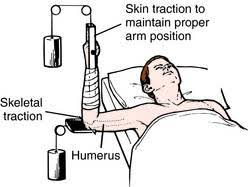A nurse is caring for a client who has fibrocystic breasts. The client asks the nurse, "What will happen to my fibrocystic breast changes after menopause?" Which of the following statements is an appropriate response by the nurse?
"You will be at increased risk of breast cancer."
"The manifestations often get worse after menopause."
"Menopause won't have any effect on the manifestations."
"The manifestations usually go away after menopause."
The Correct Answer is D
Choice A reason:
Telling a client that they will be at an increased risk of breast cancer due to fibrocystic breast changes would be incorrect. Fibrocystic breast changes are not directly linked to an increased risk of breast cancer. While the presence of complex fibrocystic changes may slightly elevate the risk, fibrocystic breasts themselves are a common and benign condition.
Choice B reason:
It is not accurate to say that the manifestations of fibrocystic breasts often get worse after menopause. In fact, fibrocystic changes are related to hormone levels, and most women experience relief from these symptoms after menopause when hormone levels decline.
Choice C reason:
Stating that menopause won't have any effect on the manifestations is also incorrect. Menopause typically leads to a decrease in hormone levels, which are associated with fibrocystic breast changes. Therefore, most women see an improvement in their symptoms after menopause.
Choice D reason:
The most appropriate response is that the manifestations usually go away after menopause. Fibrocystic breast changes are linked to hormonal fluctuations, and after menopause, when these fluctuations cease, the symptoms of fibrocystic breasts typically resolve.
Nursing Test Bank
Naxlex Comprehensive Predictor Exams
Related Questions
Correct Answer is C
Explanation
Choice A reason:
Skin traction is indeed less restrictive than skeletal traction, allowing for more mobility. It is applied using bandages or adhesive material to the skin, which can be removed or adjusted more easily than the pins or screws used in skeletal traction. This type of traction is typically used for short-term treatment before surgery or when the injury is less severe.
Choice B reason:
Discomfort levels can vary depending on the individual and the specific circumstances of the traction. However, skin traction is generally considered to be less painful than skeletal traction because it is less invasive and applies less force. Skeletal traction, which involves the insertion of pins or wires directly into the bone, is likely to cause more discomfort due to the invasive nature of the procedure.
Choice C reason:
Skeletal traction is more appropriate for reducing fractures, especially in cases where a greater force is needed to align the bones. It involves the surgical insertion of pins or wires directly into the bone, allowing for a stronger and more stable pull that is necessary for the realignment of complex fractures.
Choice D reason:
Skeletal traction carries a higher risk of infection compared to skin traction because it is more invasive. The insertion of pins or wires into the bone creates a potential entry point for bacteria, which can lead to infection at the site of insertion.

Correct Answer is C
Explanation
Choice A reason:
The statement "HIPAA is a federal law, not a state law" is correct. HIPAA is indeed a federal law that provides national standards to protect the privacy of personal health information.
Choice B reason:
The statement "HIPAA established regulations for individually identifiable health information in verbal, electronic, or written form" is also correct. HIPAA does regulate how individually identifiable health information should be protected and handled across various forms of communication.
Choice C reason:
The statement "Information about a client can be disclosed to family members at any time" indicates a need for further teaching. Under HIPAA, protected health information can only be disclosed to family members under certain conditions, such as when the patient has given permission or when it is directly relevant to the family member's involvement in the patient's care.
Choice D reason:
The statement "A client's address would be an example of personally identifiable information" is correct. Under HIPAA, a client's address is considered personally identifiable information, which is protected and cannot be disclosed without proper authorization.
Whether you are a student looking to ace your exams or a practicing nurse seeking to enhance your expertise , our nursing education contents will empower you with the confidence and competence to make a difference in the lives of patients and become a respected leader in the healthcare field.
Visit Naxlex, invest in your future and unlock endless possibilities with our unparalleled nursing education contents today
Report Wrong Answer on the Current Question
Do you disagree with the answer? If yes, what is your expected answer? Explain.
Kindly be descriptive with the issue you are facing.
